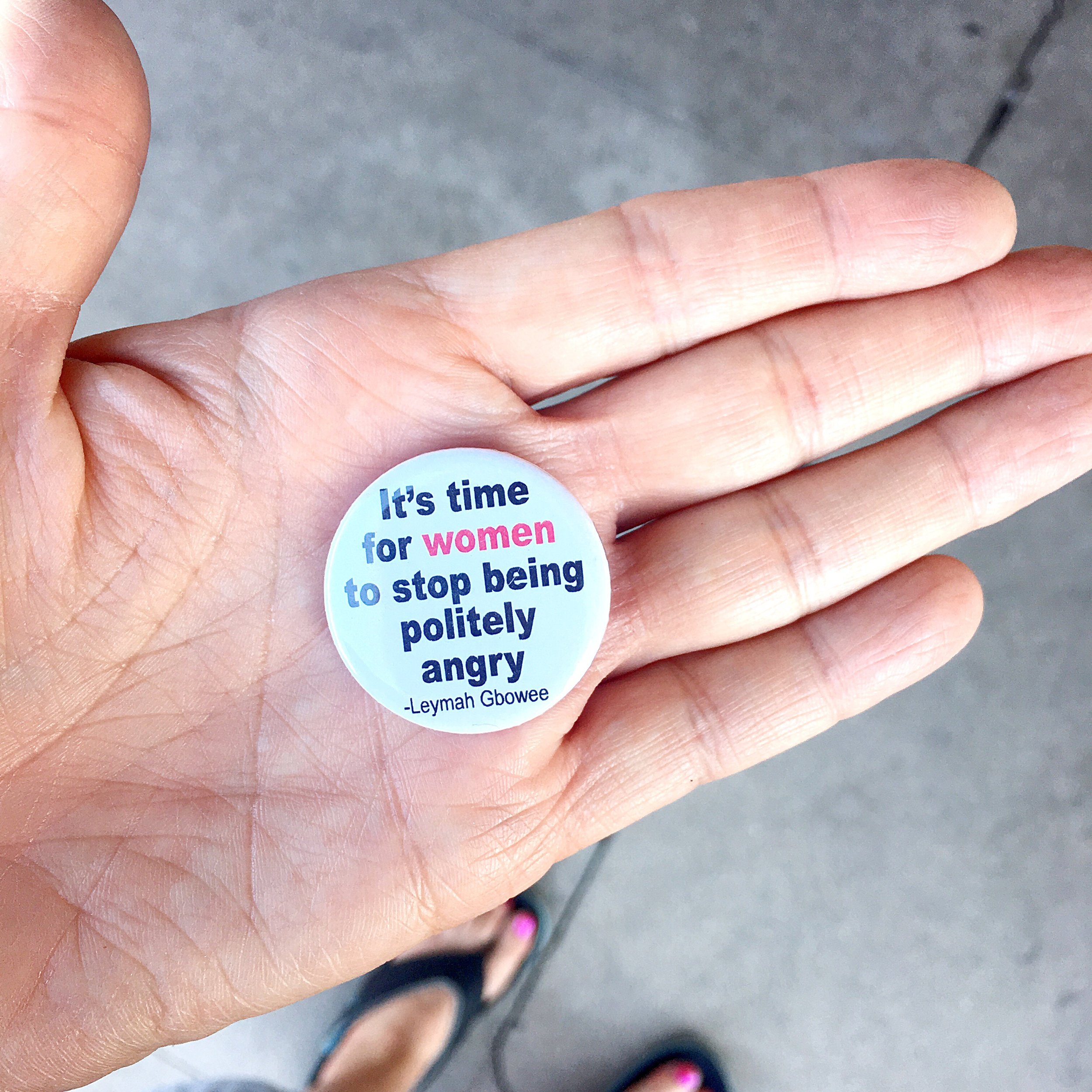{Parenting} Raising Activists
 For as along as I can remember I've been deeply patriotic. As a child, I'd tear up when I heard the national anthem. I was always the loudest kid reciting the pledge of allegiance.
For as along as I can remember I've been deeply patriotic. As a child, I'd tear up when I heard the national anthem. I was always the loudest kid reciting the pledge of allegiance.
My great-grandparents left Poland in search of a better life and America opened its door and heart to them.
My grandfather bravely fought in World War II. My uncle served multiple tours in Vietnam. And my deep sense of patriotism compelled me enlist in the Army and spend 14 years serving our country.
It was because my Great-Grandparents were brave enough to cross a continent and an ocean, I was born in this amazing land. It was becuase of my grandfather's courage to fight against tyranny and hate, I deeply understand I have to stand up for those who can't stand up for themselves. It was because of my family of origin that I never went hungry. It was because of my service in the army that I was able to go to college.
I tell you this so you understand just how much I love my country. I have been given so much and have worked hard give back to my community and country. As I've gotten older, I've come to understand the great responsibility I have to help others, especially those who haven't been given the same opportunities I have been given.
As a parent, I've made it mission to raise children who also give back; who know the importance of service: and who are activists within their communities. But how do you do that?
1. Talk to you kids.
This might be the most important part of raising activists. Talk to them and make sure they know what's going on in the world and their community. With the rise of social media and easy access to news and ideas, kids know a lot more about what's going on than we give them credit. Talk to them so they understand what they are seeing and hearing. Talk them to make sure they are getting the truth. Talk to them to address their fears and make them feel safe.
2. Teach them to form their own opinions.
During the recent election and the months since then, my kids have come home from school and their activities with ideas and opinions their friends and others have shared with them. When this has happened, I make a point of asking my children what they think of this opinion or idea. I ask them if they agree or disagree. I can't tell you how many times I have said to my children, "Just because your friend believes something doesn't mean you have to believe they same thing." If they do agree with their friend, great. But if they don't, I encourage them to stand up for themselves and stick to their guns when it comes to their beliefs.
3. Expect them to support their ideas with facts.
During the election there were many times I heard people say something like "Trump is an idiot" or "Hilary is a bitch." In our house, every statement like that has to be supported with facts. If they say they hate Donald Trump, then I ask them "why?" And in the asking, I'm expecting them to support their ideas rather than just making broad, emotional statements.
4. Help them pursue community service.
Having strong opinions is great, but until there is some action behind those ideas they are just words. Help you child actor support their ideals. For my daughter — who is deeply moved by the struggles our local homeless population — that means helping her make bags of necessities to pass out to homeless people we pass throughout our days. Whatever it is they are passionate about, find a way to get them doing something to support that passion. They learn so much in the doing.
